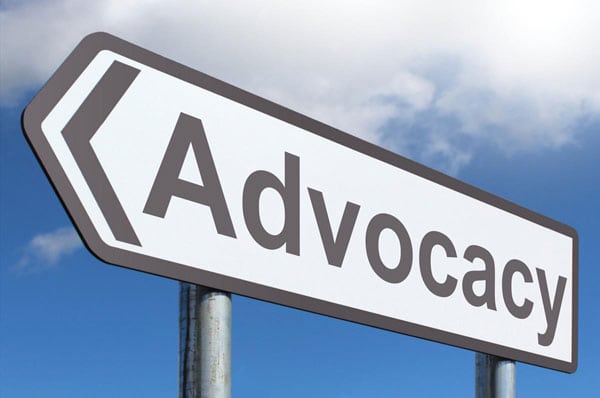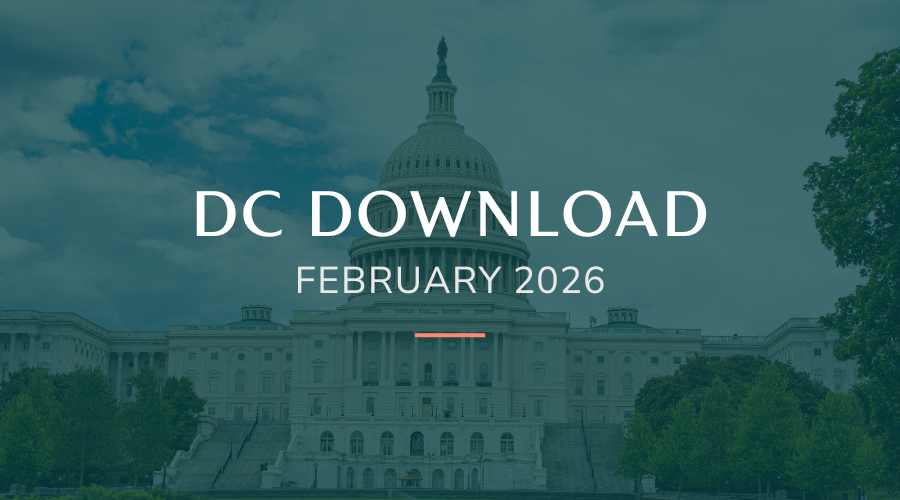State nonprofit associations play a critical role in the health of the sector. They provide capacity building resources, support services, and community connections. They also serve as the voice of the sector in their state.
We asked several state association leaders about their reactions to Independent Sector’s recently released nonprofit advocacy and civic engagement research. Their responses reiterate that while the over 1.8 million nonprofits in the United States operate in different environments, we all face similar challenges and can learn exponentially from one another.
Leaders were struck by the role that mission plays in determining nonprofit advocacy and lobbying, especially that among nonprofits that do not engage in policy, 56% report it does not apply to their mission. They emphasized the connections between organizational mission, advocacy, impact, and systems change.
“Without advocating to change structures and systems, we will never alleviate the societal problems we face. Nonprofits will simply need to serve more and more stakeholders. The Alliance for Justice defines advocacy as any action that speaks in favor of, recommends, argues for a cause, supports or defends, or pleads on behalf of others. If only 31% of nonprofits are engaging in advocacy or lobbying, there are much larger implications to the success of democracy in America. Nonprofits weren’t created to simply serve. Nonprofits are the voice of the marginalized — of those who otherwise do not have a voice.” – Danielle Dunbar, executive director, Alabama Association of Nonprofits
“After all that COVID-19 taught us, I would have thought that the importance of nonprofits’ role in public policy would have been a key lesson for nonprofits. How quickly we seem to have forgotten that nonprofits weren’t explicitly included in the original legislation for PPP loans, that many nonprofits are still awaiting payments from state governments for COVID-related activities, and that many nonprofit coalitions were able to lobby elected officials for hundreds of millions of ARPA and CARES Act funds. If we truly want to change systems, we must engage in nonpartisan public policy activities.” – Kevin Dean, CEO, Tennessee Nonprofit Network
“At the Idaho Nonprofit Center, when I talk to nonprofits about amplifying their impact, I always start with advocacy…[nonprofit] organizations are more stretched than ever before, especially ‘post-pandemic’ when funding resources are drying up and individual giving participation continues to decline. Nonprofits are understaffed and direct services take priority. Doing advocacy work often comes last when ‘time allows.’ Furthermore, many boards are hesitant to encourage, or even allow nonprofits to dip their toes in the advocacy waters for fear of backlash in our current political environment.” – Kevin Bailey, CEO, Idaho Nonprofit Center
When reflecting on nonprofit advocacy and civic engagement in their states, leaders noted that findings from research their organizations have conducted aligns with findings from the national survey on the value of coalitions and the relationship between diversity, equity, inclusion, and advocacy. They also brought up challenges they’re facing at the state government level.
“Our research aligns with the IS research in many ways. Relatively few organizations see advocacy as core to their mission or strategy. Many organizations belong to associations or collaboratives that they see as their organization’s ‘voice’ in advocacy. We do note that nonprofits who are engaged in collaboratives/associations are more apprised of policy issues and are more likely to be engaged in educating elected officials, generally speaking out on issues, and providing information to their stakeholders and boards. Unfortunately, we also note that agencies are most engaged when policy shifts pose a specific risk to organizational funding.”– Karen Beavor, president & CEO, Georgia Center for Nonprofits
“We have also done some research and found that organizations that have a DEI statement tend to be more involved in advocacy and lobbying. We are particularly working to communicate to Oregon’s nonprofits and philanthropy institutions that a big part of the “system” that needs changing is the public sector. We believe that for real systems change, we need to tackle racist concepts like reimbursement or low administrative rates as methodologies for funding public programs (most of which are implemented by nonprofits). These systems are far more malleable and open to change with enough pressure from enough nonprofits.” – Jim White, executive director, Nonprofit Association of Oregon
“[Illinois] enacted a sweeping ethics reform law that significantly expanded the definition of lobbying, which is problematic for our stakeholders, because nonprofits interact so often with local and state officials. It’s hard to run school-based programs, parks programs, mental health programs, and so on, without interacting with municipal and county officials in ways that may now be construed as lobbying. We’re concerned this will have a generally chilling effect on the level of engagement. This is a problem, because nonprofit staff know the challenges in their schools and neighborhoods so well, and public officials rely on their expertise and knowledge. Losing those connections will be a loss in terms of their ability to govern well.” – Monique Jones, president & CEO, Forefront
Lastly, leaders shared their advice for nonprofits that are deciding to engage in advocacy and those that are in the beginning of their advocacy journey.
“Advocacy is not always lobbying. Elected officials are not experts in every topic they are confronted with and many — at least in Georgia — do not have staff to research and analyze topics let alone data. Your experience, knowledge, data, and impact stories are critical to how lawmakers consider various topics and does matter in the policy making mix. In single-party dominated states like Georgia, it may seem futile but lawmakers, like the rest of us, are human and have many life experiences outside politics — from family members who may be impacted by mental health diagnosis, to a love of the great outdoors — connecting with people and finding common ground is never a bad idea.” – Karen Beavor, president & CEO, Georgia Center for Nonprofits
“When I speak to nonprofit leaders, I give the following advice to help them gain confidence and get started with advocacy work: 1) Reframe and position your nonprofit mission as part of a larger cause. It’s not about feeding the hungry; it’s about ending food insecurity once and for all; 2) Establish an advocacy committee at the board level to craft an advocacy agenda. If your board isn’t motivated to start, put the donor data in front of them. Donors want to see you involved as a larger cause. Advocacy is your vehicle to get there; 3) Tag along with partners who are stronger in this area. It’s easy to play a supporting role while your organization builds the skills in the advocacy arena. It’s ok to play in the background while you get up to speed; and 4) Assess and revise your work at least annually. Do you have skill gaps? Contact your state association of nonprofits to inquire about training.” – Kevin Bailey, CEO, Idaho Nonprofit Center
“I would advise nonprofits to become educated on the legal parameters for engaging in advocacy work. Taking the time to increase their knowledge in this area immediately alleviates misunderstandings or misjudgments on the type of work this includes. I would urge them to understand that working on the ground directly with individuals who are impacted by our systemic and institutional racism and inequities cannot happen without working on public policy. It does us no good to treat the symptoms of our challenges without eradicating what is causing it.” – Monique Jones, president & CEO, Forefront
“Educate yourself and your board of directors on your role in policy and advocacy. Create a set of policy principles and a policy agenda for your organization. Join coalitions. Know the difference between being partisan and political. Position yourself as an authority on the communities you serve and the issues your organization is addressing, and develop authentic relationships with legislators to become a trusted resource for them.” – Kevin Dean, CEO, Tennessee Nonprofit Network
“For nonprofits just dipping their toes in advocacy work, we suggest to start with some basics and build momentum as you gain confidence and comfort. Have a meeting with a county commissioner or state legislator to talk about your work. Help them understand the importance of your mission and why you feel that they need to know you. Give them examples of policies that they have either supported or opposed that helped facilitate the work that you do. Let them know that you, your staff and volunteers, and perhaps your program participants can be a resource for the elected official when they are trying to understand issues connected to your work and mission. Remember that your firsthand, on-the-ground knowledge is invaluable and you are likely the person/people that know the most about the topic you’re discussing.” – Jim White, executive director, Nonprofit Association of Oregon
“Alabama is not alone in its decreased advocacy activities or funding limitations. Without advocacy and lobbying, we will not make a long-term impact on those we are serving. We might feed and house those in need or provide education to those who aren’t reading on grade level, but if we aren’t advocating to change the systems around us to be more equitable, we will fall farther and farther behind. Nowhere is this more important than in the south and in Alabama, the state I call home.” – Danielle Dunbar, executive director, Alabama Association of Nonprofits
Advocacy may seem daunting but, as we’ve learned from these leaders, it’s okay to start with the basics and ask for help. We encourage you to seek out nonprofit associations and coalitions in your state and access the robust resources available as you work toward your missions.
Thank you to Kevin Bailey, Karen Beavor, Kevin Dean, Danielle Dunbar, Monique Jones, and Jim White for your thoughtful contributions to this blog.
Emily Rogers is Manager, Policy Research at Independent Sector.



